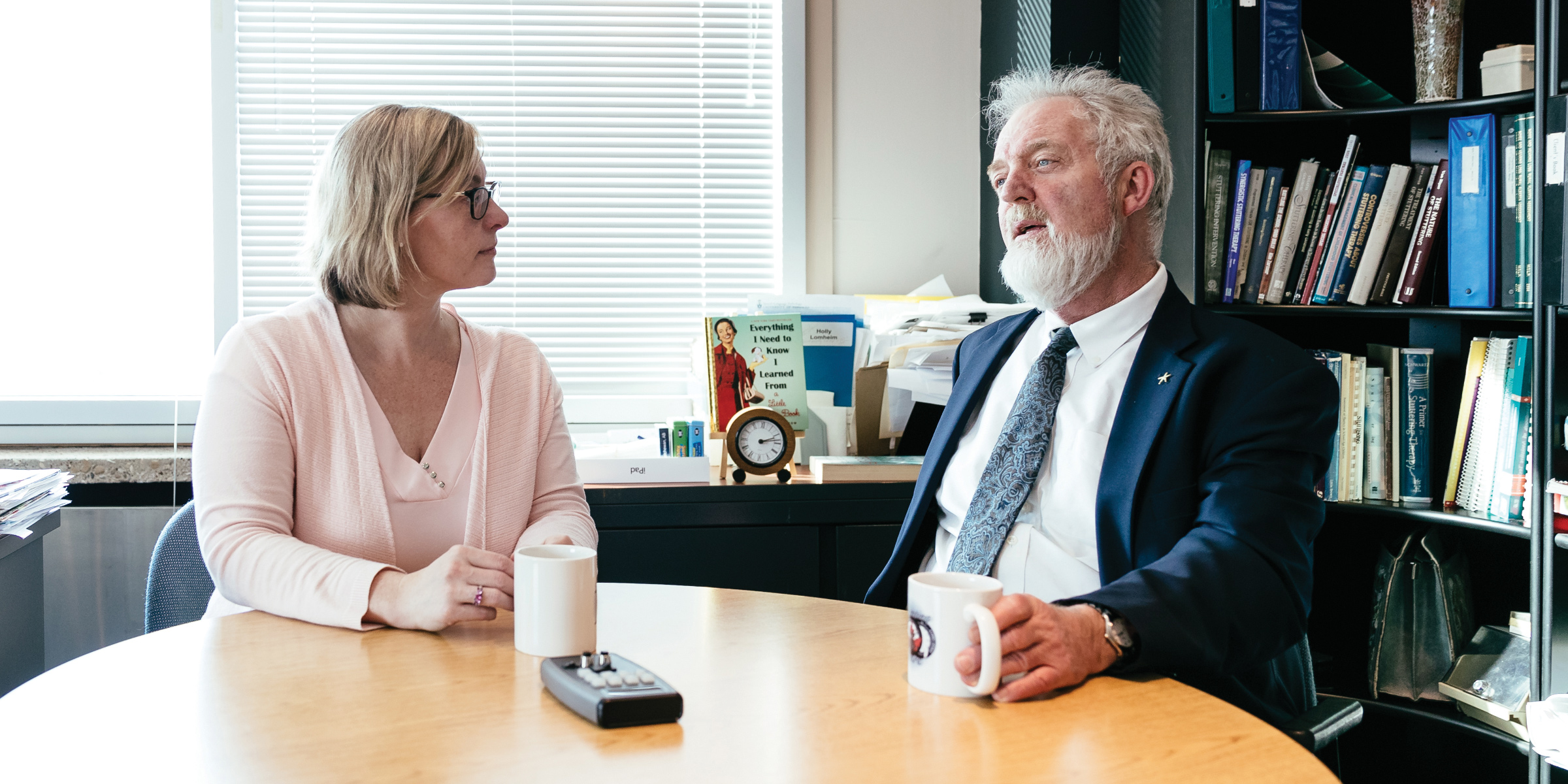
Michael Niven, pictured with director Holly Lomheim, gives back to ISTAR.
It was the empty desk that tipped him off. Michael Niven stepped into his boss's sprawling office at a law firm in downtown Calgary ready to discuss a file, but when he saw the desk's smooth surface he knew something was wrong. There should have been papers everywhere - stacks of folders ready to review. But there was no paper. No file to discuss. Michael braced, already knowing what was going to happen next.
The day Michael was fired because of his stutter, he had a wife, a baby and a mortgage to worry about. Yet these days he will tell you that moment in 1987 was a turning point. It was the day he admitted to himself that if he wanted to go further in his career, he needed help to overcome his stutter. That revelation led him to the Institute of Stuttering Treatment and Research (ISTAR) at the University of Alberta - a place that changed his life forever. Now he's giving back through a gift in his will to the U of A, making stuttering treatment affordable for future generations.
For the first three decades of his life, Michael had succeeded in spite of a debilitating stutter. He completed law school in Scotland, came to the U of A to finish a postgraduate degree and even awkwardly asked his wife out on their first date - all with a stutter. The stutter had never stopped him from getting where he wanted to go. Which is why, when his mother-in-law gave him a magazine ad for ISTAR, Michael politely took it and promptly chucked it in his desk drawer.
After he was fired, Michael quickly went through the stages of grief. He spent a few days gathering himself and then, like a good lawyer, he began to strategize. He went back to that old desk drawer, pulled out the ad for ISTAR and made a call. Fast-forward to the end of three weeks of intensive treatment and Michael could finally speak clearly. "I was out of the cage and I was free."
Michael, now a partner in his own law firm, is paying forward his experience through a gift in his will to the University of Alberta, looking to make a difference for children who stutter. "I'm a recovering stutterer. For the rest of my life, to speak fluently, I'll need to keep practising techniques I learned at ISTAR or else my stutter will come back," says Michael, who is now chair of the Foundation of ISTAR, which raises funds and builds community support for ISTAR's work.
"But if you get a kid who is four or five or seven and they stutter, early intervention can dramatically improve their chances of speaking more fluently."
Shortly after his time as a client at ISTAR, Michael and his wife travelled to Scotland to visit his parents. Michael remembers talking with his mother, who had worked throughout his childhood trying, and failing, to get help for his stutter. She sat and listened as her son, a grown man with a wife and child of his own, was finally able to speak clearly.
"We were sitting there and talking and she stopped and said, 'You know, this is the first proper conversation we've ever had,' " Michael recalls. "I'm glad she had that."